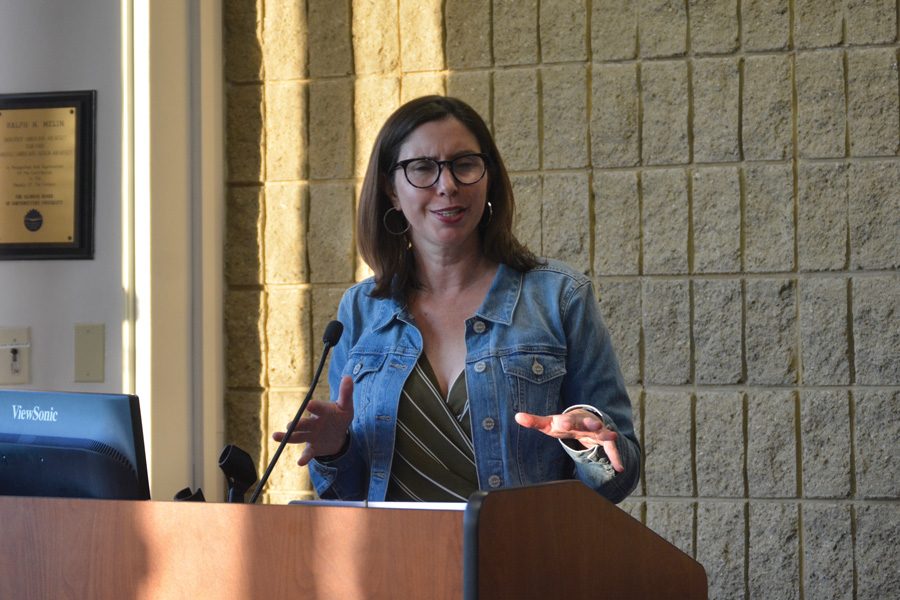Administrator discusses advancements, challenges for medical leave of absence policy during ASG Senate
Alison Albelda / Daily Senior Staffer
Interim Dean of Students Mona Dugo. Dugo said the University is doing everything it can to keep the community safe.
May 15, 2019
Mona Dugo, Northwestern’s senior associate dean of students, discussed advancements in the University’s medical leave of absence program and remaining challenges it faces during Associate Student Government’s Wednesday Senate meeting.
Throughout Dugo’s six-year tenure, she’s worked to improve the University’s processes for medical leave from “rows and rows” of disorganized binders containing various students’ names to a coordinated operation that engages deeply with individual students to offer financial support and create plans for treatment during their leave.
Dugo said 529 students took medical leave between Fall 2014 and Spring 2018. The top two reasons for leaving were anxiety and depression. Black, Hispanic, first-generation and low-income students were all overrepresented in the percentage of students who took medical leave, Dugo said, demonstrating the need for continued effort toward combating the unique challenges faced by traditionally marginalized groups.
Increased financial assistance has been a signature achievement for NU’s medical absence programm Dugo said. Her office provides funds for housing, healthcare and other necessities, she said. She’s arranged health insurance for about 60 students since the start of the school year, she added, and her office has paid out approximately $38,000 in medical co-pays and fees.
“If we have students who don’t have health insurance, we’re never going to put treatment requirements in place for students that they can’t meet because they can’t afford them,” Dugo said. “If a student doesn’t have insurance, I’m going to work really hard to get them student insurance and we have a couple mechanisms for doing that.”
Increasing transparency has been an issue, Dugo admitted. McCormick sophomore Spencer Colton, ASG’s vice president for technology, discussed obstacles students on leave have faced when they return to campus due to a lack of information.
“There’s been at least one person who’s come to me and asked for information about medical leave of absence because I was part of ASG,” Colton said. “She did end up going through with it but then when she tried to come back to the University, there was some kind of lack of communication and she missed the deadline… She ended up just transferring elsewhere because she felt like she couldn’t do it here anymore.”
Dugo’s office, in response, has been working with the Office of the Registrar to centralize information for all different kinds of leave students can take. The website for medical leave of absence will also be undergoing major revisions this summer to increase transparency in the medical absence process, include student testimonials and information regarding financial support options and provide checklists for students who are planning on returning to campus to complete.
The office has not done as much to combat the stigma associated with medical leave, Dugo conceded, though it plans to work with student groups such as NU Active Minds in the future. The concession came in response to a question from NU Active Minds senator Matthew Cho concerning how students who choose to leave must fight a culture that stresses academic achievement.
“I understand that stigma is really difficult to address, naturally,” Cho said. “But, personally I believe the institution does have a big role to play the stigmas of its community.”
Email: [email protected]
Twitter: @jalan_atul
Related Stories:
– All-student advisory board to assess medical leave of absence process
– Student medical group petitions for increased emergency medical services


